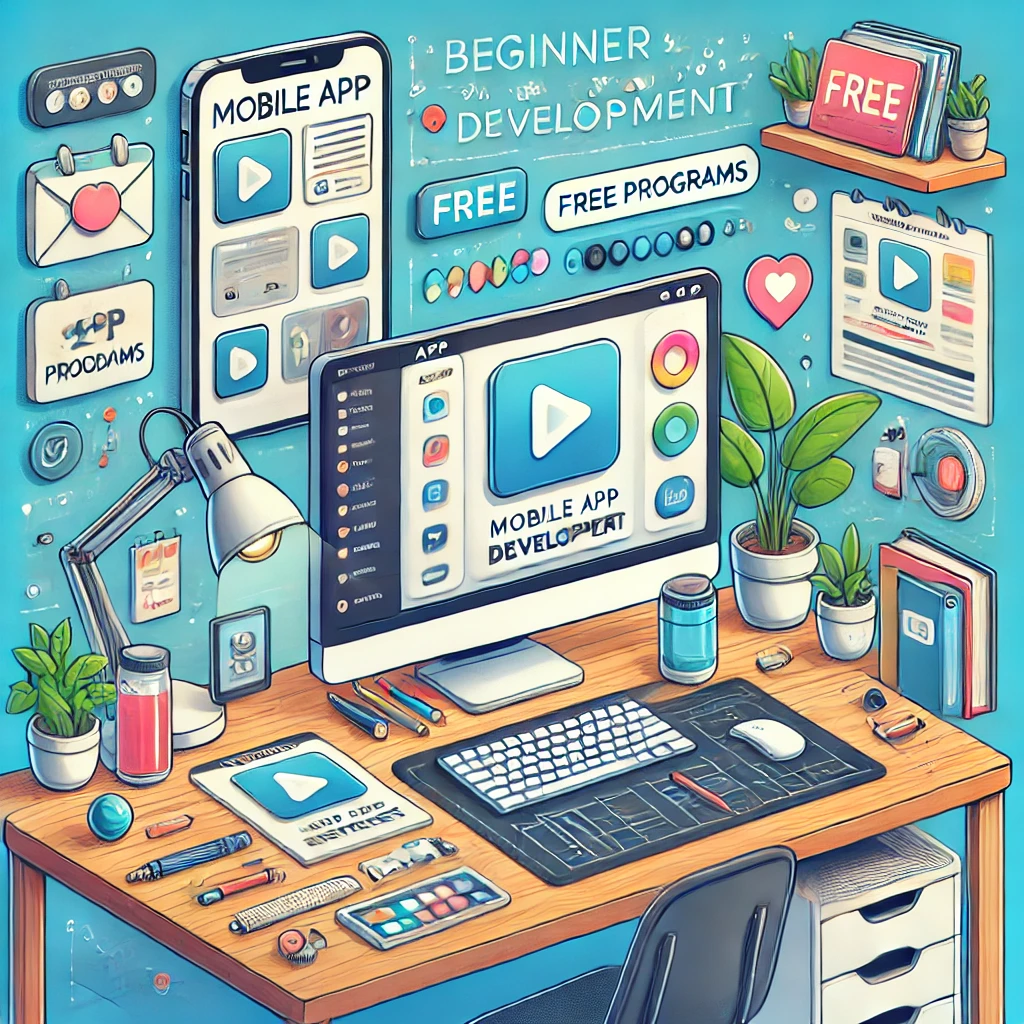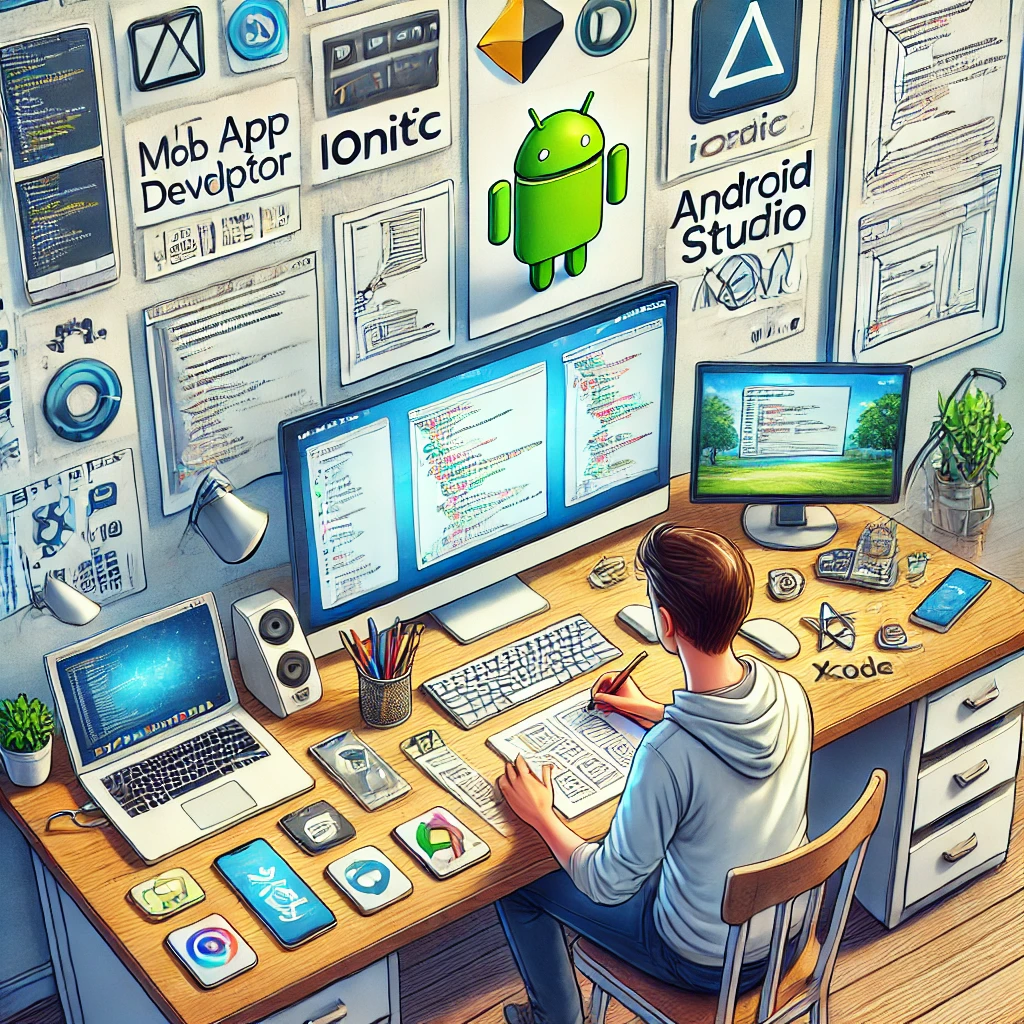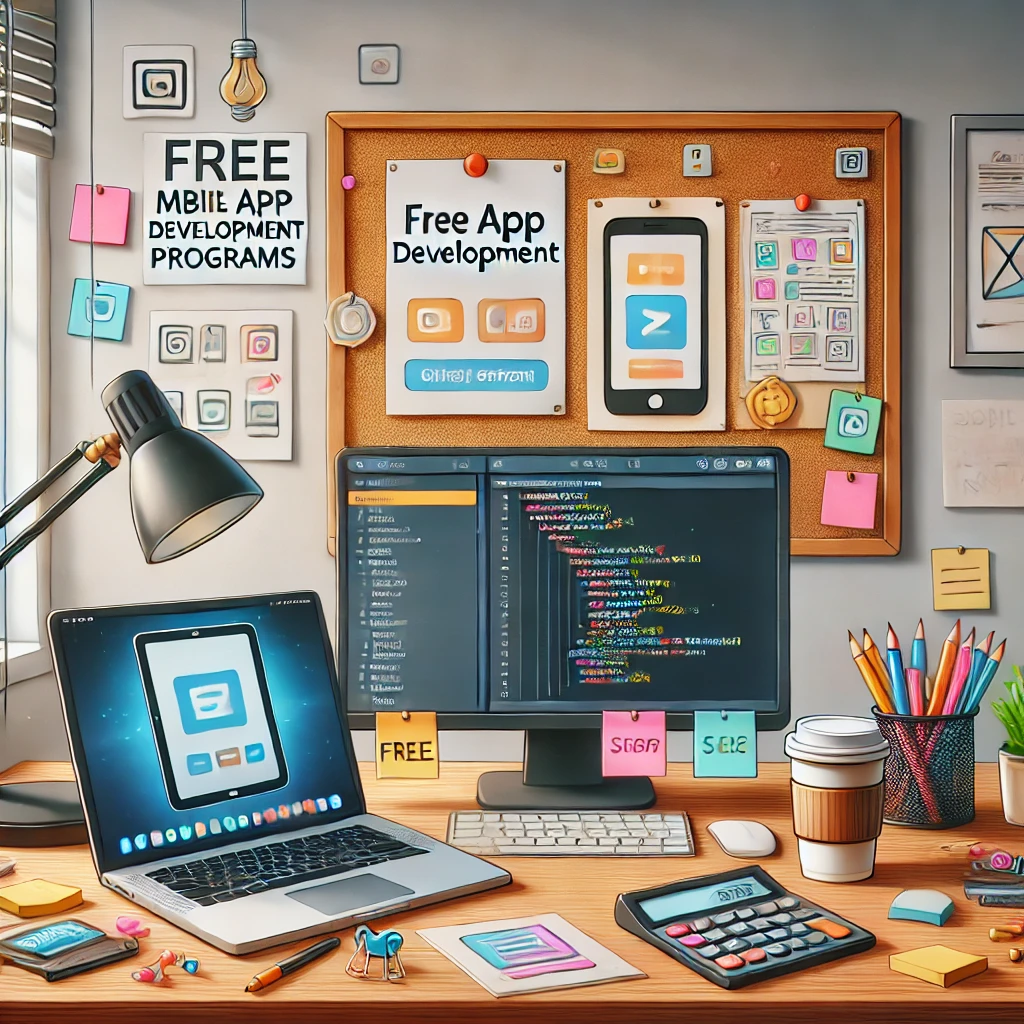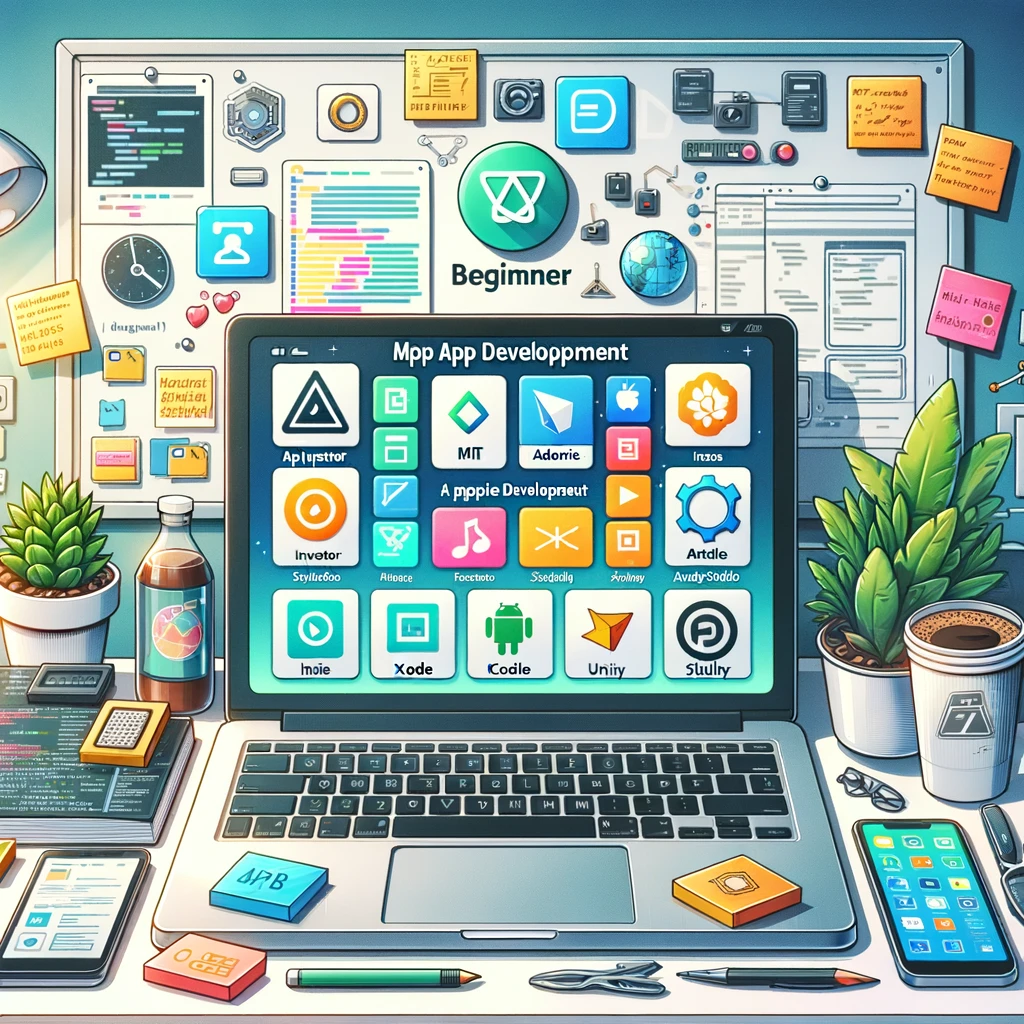Free App Development Programs: Top Tools for Building Your First App

Why Use Free App Development Programs?
Before we dive into the tools, let’s quickly cover why free programs are great for beginners:
- No financial risk
- Learn at your own pace
- Experiment with different approaches
- Build a portfolio without investment
- Upgrade to paid versions later if needed
Now, let’s explore the top free tools for app development!
MIT App Inventor
Best for: Complete beginners with no coding experience
MIT App Inventor is a block-based programming tool that makes app creation as easy as putting together puzzle pieces.
Key Features:
- Drag-and-drop interface
- Android app development
- Built-in emulator for testing
- Large community and learning resources
Pros:
- Very easy to use
- Great for learning programming concepts
- Quick to build simple apps
Cons:
- Limited to Android apps
- Not suitable for complex applications
App Development tool: Ionic
Best for: Web developers transitioning to mobile apps
Ionic lets you use web technologies (HTML, CSS, JavaScript) to build mobile apps.
Key Features:
- Cross-platform development (iOS, Android, Web)
- Integration with popular frameworks like Angular and React
- Large library of pre-built components
Pros:
- Familiar for web developers
- Create once, deploy everywhere
- Active community support
Cons:
- Steeper learning curve for non-web developers
- Performance can be slower than native apps

Android Studio
Best for: Those serious about Android app development
Android Studio is Google’s official Integrated Development Environment (IDE) for Android app development.
Key Features:
- Full-featured Android development environment
- Built-in emulator for testing
- Kotlin and Java support
- Powerful debugging tools
Pros:
- Industry-standard for Android development
- Comprehensive documentation and tutorials
- Direct integration with Google Play Store
Cons:
- Steep learning curve for beginners
- Requires knowledge of Java or Kotlin
- Resource-intensive (needs a decent computer)
App Development tool: Xcode
Best for: macOS users interested in iOS app development
Xcode is Apple’s IDE for creating apps for all Apple platforms.
Key Features:
- Complete toolset for iOS, macOS, watchOS, and tvOS development
- Swift and Objective-C support
- Interface Builder for UI design
- Integrated testing and debugging tools
Pros:
- Direct integration with App Store
- Simulator for testing on various Apple devices
- Comprehensive documentation
Cons:
- Only available for macOS
- Can be overwhelming for beginners
- Requires learning Swift or Objective-C
App Development tool: Unity
Best for: Game developers and interactive app creators
While known for game development, Unity can also be used for creating interactive mobile apps.
Key Features:
- Cross-platform development
- Powerful 2D and 3D capabilities
- Large asset store (some assets are free)
- Visual scripting options
Pros:
- Great for visual and interactive apps
- Extensive learning resources
- Large community support
Cons:
- Overkill for simple, non-game apps
- Steeper learning curve for non-game developers
- Free version has limitations

Flutter
Best for: Developers looking for fast, beautiful cross-platform apps
Flutter, by Google, allows you to build natively compiled apps for mobile, web, and desktop from a single codebase.
Key Features:
- Fast development with hot reload
- Expressive and flexible UI
- Native performance
- Rich set of pre-built widgets
Pros:
- Single codebase for multiple platforms
- Beautiful, customizable UI
- Growing community and resources
Cons:
- Requires learning Dart programming language
- Newer than some other options (but rapidly growing)
Apache Cordova
Best for: Web developers wanting to create hybrid mobile apps
Apache Cordova allows you to use standard web technologies to build cross-platform apps.
Key Features:
- Use HTML, CSS, and JavaScript
- Access device features through plugins
- Build for multiple platforms from one codebase
Pros:
- Familiar for web developers
- Large plugin ecosystem
- Cross-platform development
Cons:
- Performance can be slower than native apps
- UI may not feel as native
- Dependent on plugins for native features
Xamarin
Best for: .NET developers transitioning to mobile development
Xamarin, now part of Microsoft’s .NET platform, allows you to build native Android, iOS, and Windows apps using C#.
Key Features:
- Native UI, native API access, and native performance
- Shared C# codebase across platforms
- Integration with Visual Studio
Pros:
- Familiar for .NET developers
- High-performance native apps
- Strong corporate backing from Microsoft
Cons:
- Steeper learning curve for non-.NET developers
- Free version has some limitations
- Larger app sizes compared to fully native apps
Choosing the Right Tool for You
With so many options, how do you choose? Here are some factors to consider:
- Your coding experience: If you’re new to coding, start with simpler tools like MIT App Inventor.
- Target platform: Want to build for iOS, Android, or both?
- App complexity: Simple apps can be built with most tools, but complex apps might need more powerful options.
- Learning curve: How much time can you invest in learning?
- Community support: Larger communities mean more resources and help when you’re stuck.
Remember, the best tool is the one you’ll actually use. Don’t be afraid to try a few different options to see what fits your style and needs best.

Getting Started
Once you’ve chosen your tool, here are some steps to get started:
- Download and install your chosen program
- Follow the official “Getting Started” guide
- Complete a simple “Hello World” app tutorial
- Join online communities (forums, Reddit, Stack Overflow) for your chosen tool
- Start building your app idea, breaking it down into small, manageable parts
- Don’t be afraid to make mistakes – they’re part of the learning process!

Wrapping Up
Creating your first app is an exciting journey, and these free tools make it more accessible than ever. Whether you’re building the next big game, a productivity app, or just learning for fun, there’s a free app development program out there for you.
Remember, the key to success is persistence. You might face challenges along the way, but don’t give up. With practice and patience, you’ll be surprised at what you can create.
Ready to start building your first app? Choose a tool, dive in, and happy coding!
